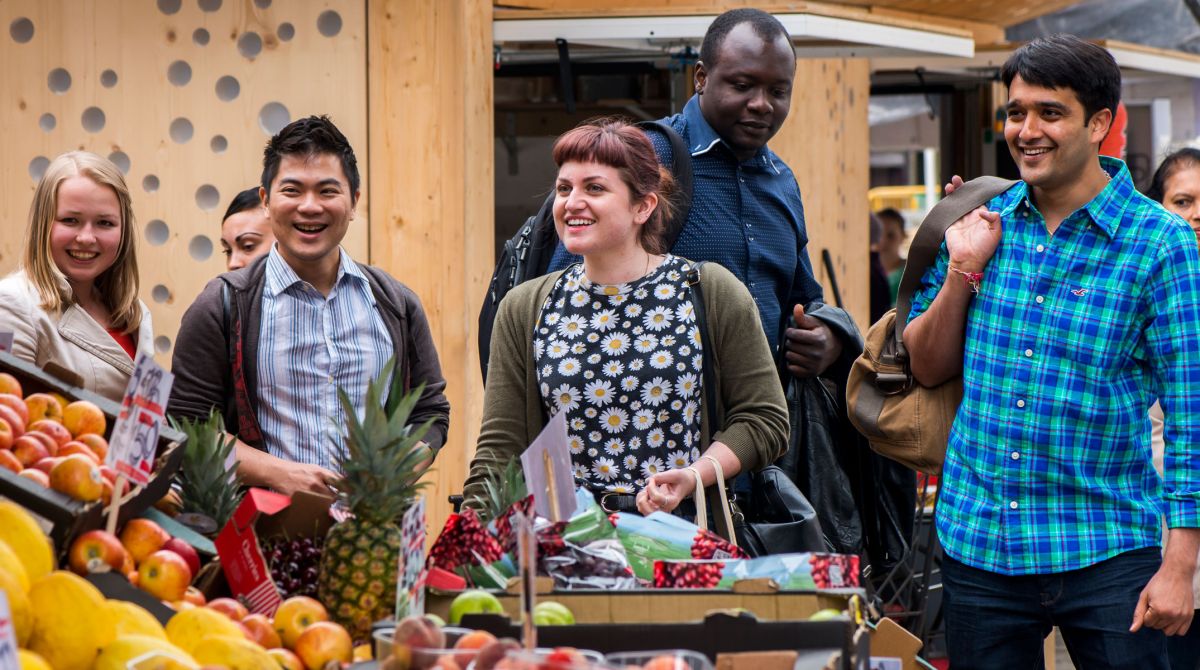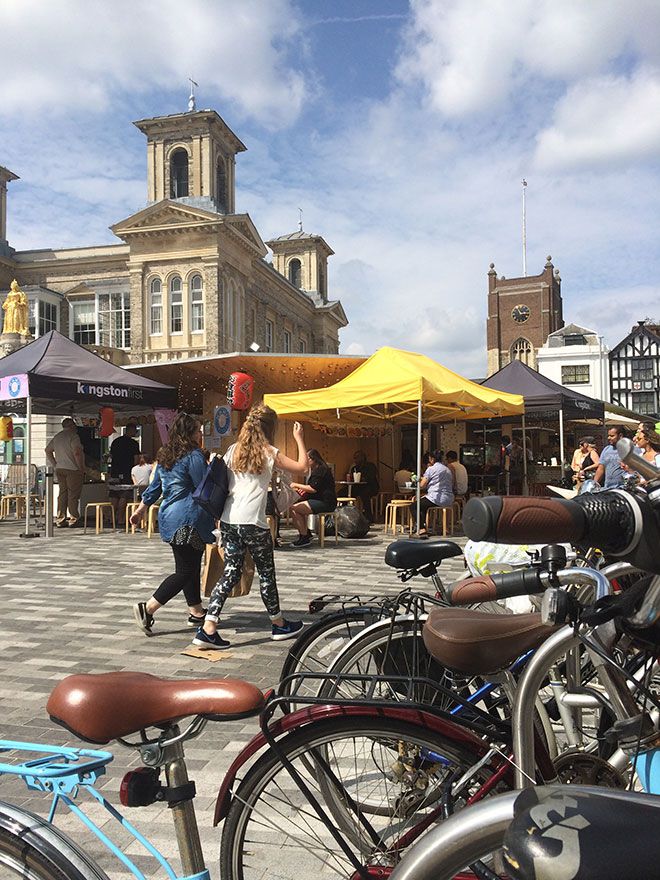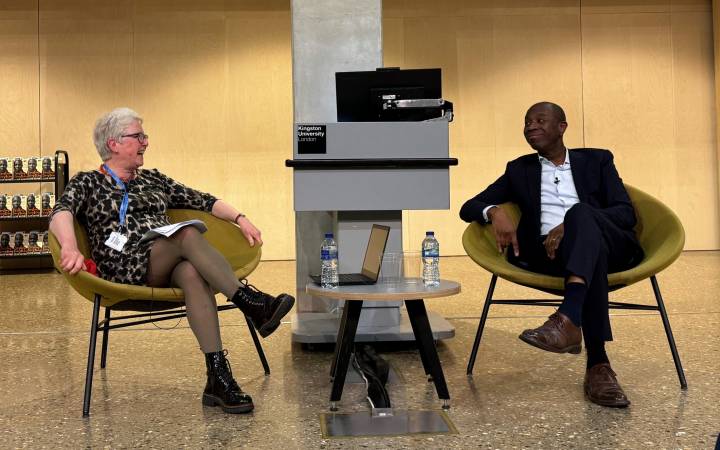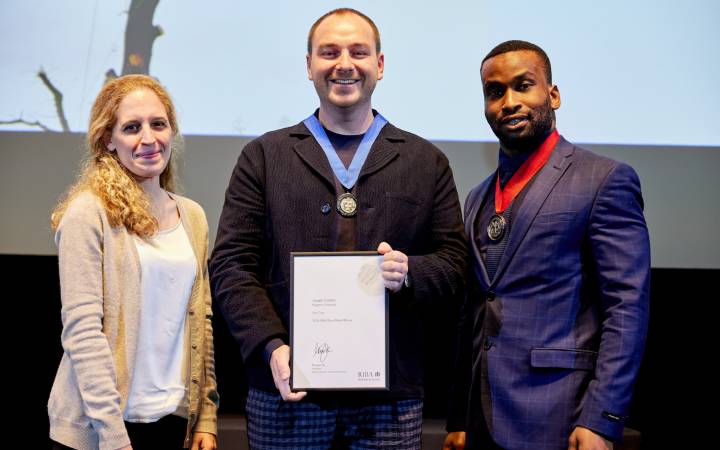Report shows Kingston University contributes more than £2.5 million to the national economy every day
Posted Tuesday 22 March 2016

A new report published by BiGGAR Economics shows that Kingston University is making a substantial economic contribution to the local borough, London and the United Kingdom as a whole. The report found that, in 2014/15, Kingston University generated an estimated £921.1 million Gross Value Added (GVA) as well as supporting 12,500 jobs throughout the country. Of this total:
- £453 million GVA and 7,900 jobs were in London and
- £221.1 million GVA and 3,800 jobs were in the Royal Borough of Kingston upon Thames.
GVA is the measure of the value of goods and services produced in an area, industry or sector of an economy.
The report also found that, for every pound spent, the University generated £10 GVA for the national economy, making it a dynamic economic driver. Similarly, every job provided directly by the University supported 6.9 jobs throughout the United Kingdom.
The study quantified the economic impacts associated with five main areas of activity:
- Core impacts (including direct employment, expenditure on goods and services, spending on employees and capital investments), contributed £276.2 million GVA and 6,111 jobs to the UK economy, of which £155 million GVA and 3,073 jobs were in London. Of this, it was estimated that £114.1 million GVA and 2,284 jobs were in Kingston upon Thames;
- Student impacts (including student spending, part-time work volunteering and industrial placements), supported economic activity with an estimated value of £71.3 million GVA and 1,417 jobs in the borough, and £194.8 million GVA and 4,368 jobs in London. In the UK this was estimated to amount to £238.1 million GVA and 5,739 jobs;
- Tourism and culture (including visits to staff and students, conferences, events and graduations), contributed £2.2 million GVA and 96 jobs in the Kingston upon Thames area, £4.1 million GVA and 157 jobs in London, and £4.7 million GVA and 178 jobs in the UK;
- Knowledge transfer (including continuing professional development courses and business collaboration contracts), contributed an estimated £3 million GVA and 52 jobs in the Kingston upon Thames area, £15.2 million GVA and 256 jobs in London, and £26.4 million GVA and 442 jobs in the UK;
- Graduate premium (lifetime productivity gains from teaching and learning delivered by the University), was estimated at £375 million GVA for the UK economy as a whole, including £83.3 million GVA in London, of which £30.3 million GVA was in the local borough.
 Kingston University is making a substantial economic contribution to the local borough, London and the UK as a whole
Kingston University is making a substantial economic contribution to the local borough, London and the UK as a whole
As well as the quantifiable economic impacts, the University has made significant community contributions, including:
- Playing an active role in more than 20 local organisations and partnership groups. These are focused on promoting the area, eg Creative Kingston, which aims to develop Kingston upon Thames as a cultural centre, or improving the area, such as the Kingston Strategic Partnership, which sets the overall vision and direction for the Royal Borough.
- Promoting important causes in the public sphere, such as a scheme in collaboration with Fulham FC. This uses the popularity of football to improve the health of young people in Surrey by delivering workshops and encouraging more physical activity. A further scheme aims to improve the health of overweight men over the age of 35. Initiatives have also been launched to improve the employment prospects of unemployed young people and to encourage others to go to university.
- Providing widening participation and outreach activities.
- Promoting science through the use of a mobile laboratory. This scheme, which uses specially designed, easily transportable labs in the back of a lorry, involves visiting schools, community groups and public events to communicate the power of science and raise aspirations especially amongst young women.
- Providing a free dispute-resolution service. Academic staff act as impartial mediators ensuring that each side feels they have a safe non-judgemental environment to engage in dialogue, making it easier to reach a satisfactory conclusion.
- Taking part in a variety of events such as public lectures, exhibitions and performance arts. In 2014/15 more than 25,000 people attended events that academics from Kingston University were involved in.
- Find out more in the full BiGGAR Economics report (PDF).
Contact us
General enquiries:
Journalists only:
- Communications team
Tel: +44 (0)20 8417 3034
Email us



